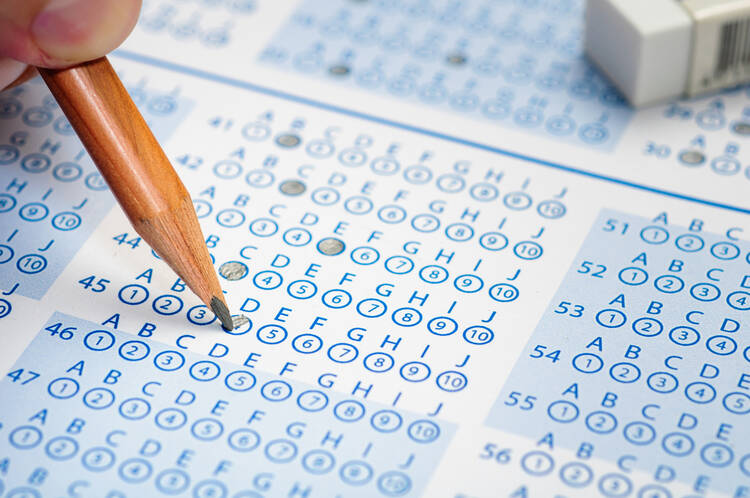The SAT is still broken—so write Richard C. Atkinson and Saul Geiser in The New York Times. Speaking of the changes to the exam (which will take effect next year), the authors note:
While a clear improvement, the revised SAT remains problematic. It will still emphasize speed — quick recall and time management — over subject knowledge. Despite evidence that writing is the single most important skill for success in college, the essay will be optional. (Reading and math will still be required.)And the biggest problem is this: While the content will be new, the underlying design will not change. The SAT will remain a “norm-referenced” exam, designed primarily to rank students rather than measure what they actually know. Such exams compare students to other test takers, rather than measure their performance against a fixed standard.
Stepping back from the changes, the authors address the more significant and philosophical shortcomings of the SAT and similar tests:
Norm-referenced tests like the SAT and the ACT have contributed enormously to the “educational arms race” — the ferocious competition for admission at top colleges and universities. They do so by exaggerating the importance of small differences in test scores that have only marginal relevance for later success in college. Because of the way such tests are designed, answering even a few more questions correctly can substantially raise students’ scores and thereby their rankings. This creates great pressure on students and their parents to avail themselves of expensive test-prep services in search of any edge. It is also unfair to those who cannot afford such services. Yet research on college admissions has repeatedly confirmed that test scores, as compared to high school grades, are relatively weak predictors of how students actually perform in college.
In my experience, the authors are absolutely right. But this leads to the question: What would a better testing regime look like? Atkinson and Geiser offer a way forward.








